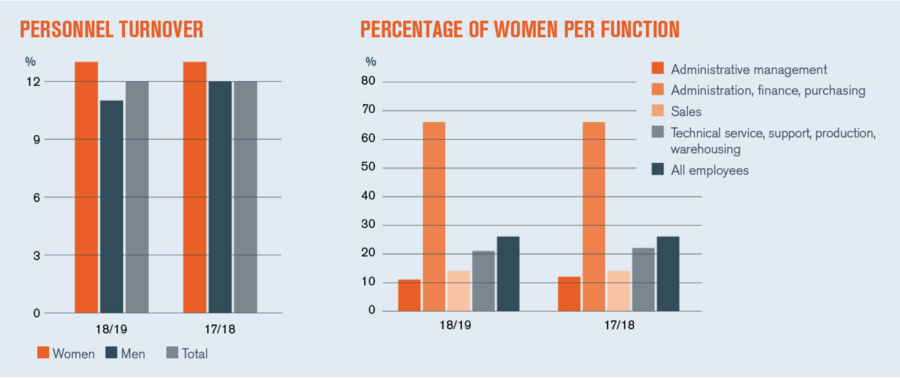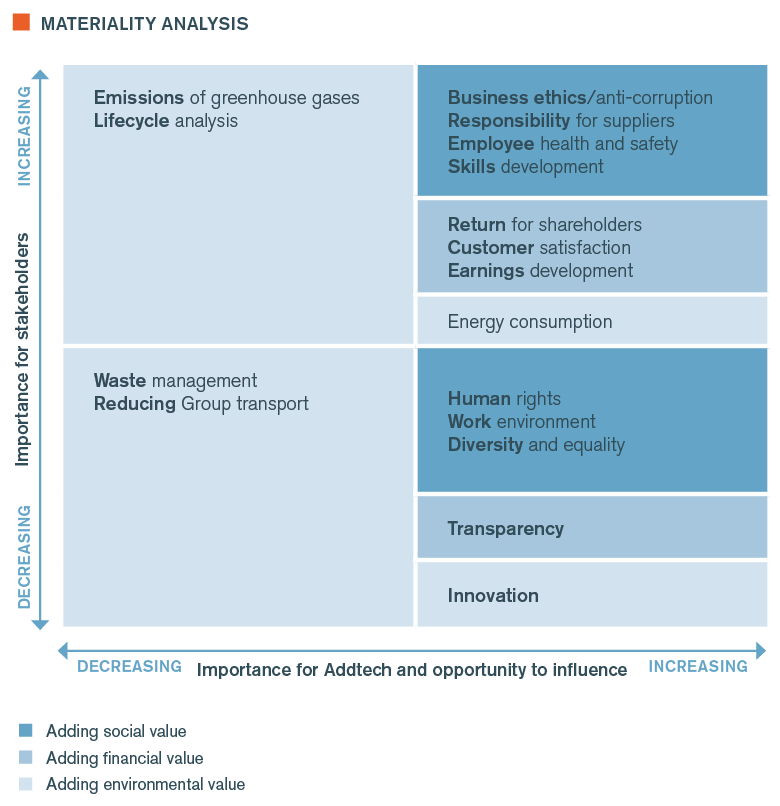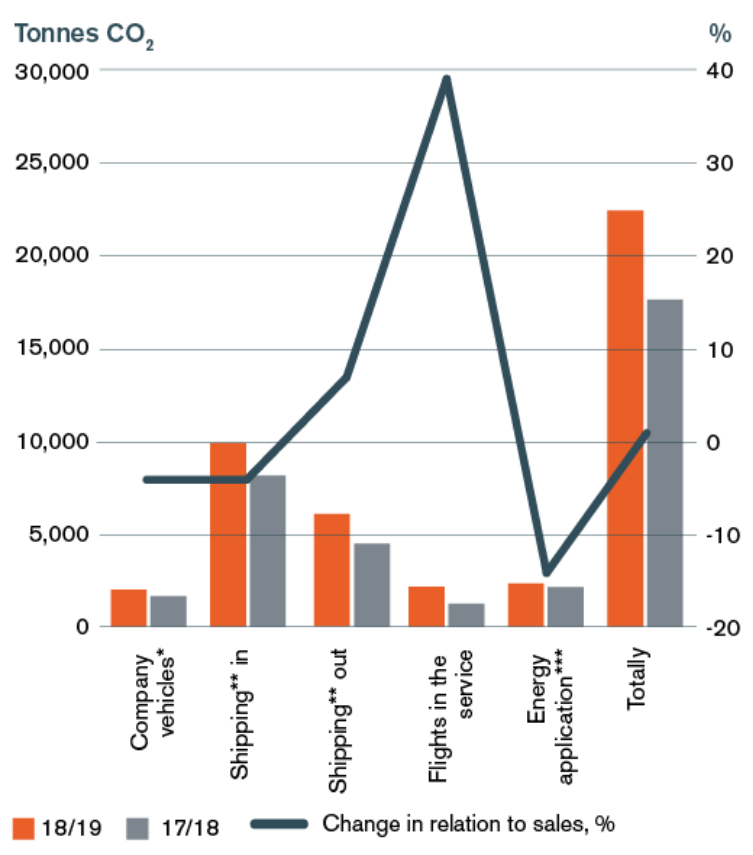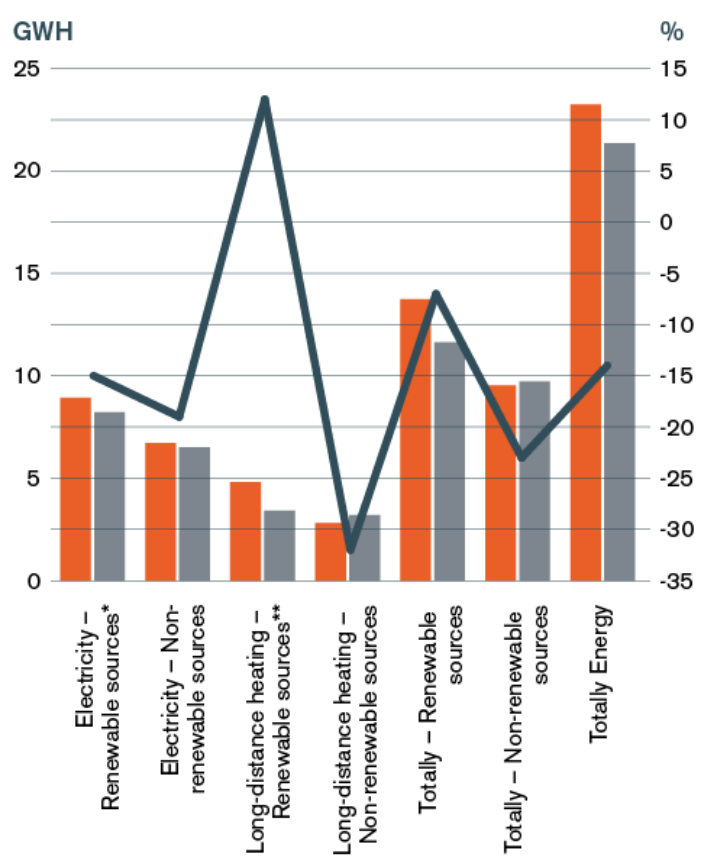Adding social value: Our role in society
More jobs, increasing tax revenues and innovations. These are some of the contributions that Addtech can make to society.
Addtech generates value at many levels in society: We contribute to general prosperity through job opportunities, tax revenues, innovative power in industry and more developed local competitiveness. Our companies often have strong local roots and, by facilitating viable, long-term entrepreneurship, we are able to strengthen local business and industry. We always endeavour to recruit locally and to offer employment for young people.
Employees
At Addtech, it is common for employees to stay with the company for a long time – on average almost ten years. We are proud of that. We want to maintain long-term relationships with our employees and offer secure forms of employment, a favourable work environment and individual development opportunities. When our employees enjoy their work, grow and reach their full potential, Addtech gains continuity in its operations, more initiatives that develop our business and internal management supply.
Continuous skills development is important and we offer tailored training through our own business school, the Addtech Academy. This is available to all employees and is an important platform for disseminating our corporate culture. The Addtech Academy is also a key forum, strengthening the Group’s internal network.
We conduct regular employee surveys to identify our strengths and weaknesses as an employer. These surveys also allow us to ascertain needs shared by subsidiaries and to identify successful ideas that could benefit more companies. Our target is for each employee to attend a personal performance and development interview once a year.
Health and safety
Health and safety is a priority area. While the operations within the subsidiaries’ facilities entail risks for work-related illnesses and accidents, the sales operations also entail a risk of accidents when travelling or visiting customers’ factories and facilities, for example. It is our target that no employees should suffer physical or mental ill health due to their work situation. For this reason, we apply a zero vision regarding work-related accidents, illness and incidents and our ambition is to continuously promote health and well-being among our employees.
Sustainability in the supply chain
We work with a large number of global suppliers’ products and solutions. Most purchases are made from suppliers outside the Nordic region, in Europe, the US and Asia. This entails sustainability risks. At the same time, our supplier relationships are often long-term and characterised by close cooperation. This affords us favourable opportunities for a dialogue regarding risks and development. During 2016/2017, we developed a specific Code of Conduct for suppliers, which was subsequently rolled out. By 2020, our target is to have assessed the following based on the Code of Conduct:
- As a minimum, the 20 largest suppliers per business area
- At least 50 percent of the purchasing volume or, alternatively, the five largest suppliers per subsidiary
- New suppliers with a potential purchase volume of more than SEK 1 million
Each subsidiary is responsible for taking risks regarding its products and locations into account.

People in focus
All employees are to be afforded equal opportunities for development, regardless of gender, age, ethnic origin, religion, political views, sexual orientation, disability or other distinguishing characteristics. We defend human rights, and require that all of our companies and suppliers, as a minimum, comply with the minimum requirements under national legislation with regard to labour law. We apply zero tolerance regarding forced labour and work actively to prevent regulatory violations within our operations or value chain. All operations bearing our name adhere to the UN Convention on the Rights of the Child, ILO Convention (No. 138) concerning the Minimum Age for Admission to Employment and ILO Convention (No. 182) concerning the Prohibition and Immediate Action for the Elimination of the Worst Forms of Child Labour. We embody superior business ethics, apply zero tolerance regarding corruption and work actively to counteract bribery and unfair practices that restrict competition.
Read more in our Codes of Conduct at www.addtech.se
Adding social value
| Targets | Outcome 2018/2019 | Comment |
|---|---|---|
| • Have the industry’s most satisfied employees |
Type of employment Percentage of permanent employees: 98% (96) Percentage of full-time employees: 94% (93) Personnel turnover 12% (12) |
Temporary employees are primarily engaged to substitute for regular employees who are ill or absent for other reasons. The trend was positive in terms of the percentage of permanent employees. We endeavour to keep personnel turnover at a low level. |
| • No employees should suffer physical or mental ill health due to their work |
Absence due to illness 3% (2) | Although absence due to illness increased marginally over the year, it remained well below the average for Swedish companies. The ambition is to continuously reduce absence due to illness. No fatalities occurred during the year. |
| • Be a workplace that promotes diversity and equality |
Gender distribution Percentage of women/men in the group Women - 26% Men - 74% | Our long-term goal is to increase the percentage of women to reflect, as a minimum, the general gender distribution in the technology sector and the percentage among graduates from relevant engineering programmes. We will continue to focus on the issue and encourage employees’ own initiatives. During the year, for example, a group of women salespeople took the initiative to start a Group-wide network to increase the proportion of women in leading rol |
| • All employees are to attend personal performance and development interviews |
Employee development interviews Percentage of documented performance and development interviews: 63% (62) |
For 2019/2020, our target is to increase the proportion of employees having attended personal performance and development interviews. With respect to the employee survey, the response rate increased somewhat. In the future, we will prioritise efforts to increase the response rate. |
|
• All employees, operations and suppliers must adhere to our Code of Conduct • To annually increase the percentage of suppliers having undergone our supplier assessment |
Supplier assessments Continued work to roll out the Code of Conduct and perform assessments of the business areas’ largest suppliers. | During the year, there were no cases of corruption, child labour or violations of labour law. |



